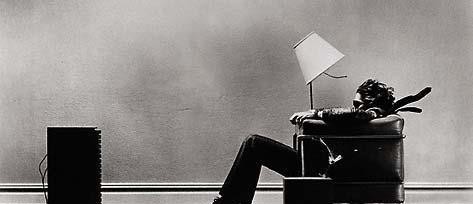Editor’s note: The author of this letter submitted it with the title “A Korean Conservative’s Perspective on MBC’s Infamous Report.” 3WM changed the head.
By Christopher Smith

Like many of the foreign community living in Korea I was appalled to watch MBC’s pathetic excuse for journalism that spread like wildfire through social networking sites in late May. I myself am an Englishman happily married for two years to a Korean woman. The news episode certainly did not represent me and many of my friends living in Korea past and present.
It is all too easy to see where the paranoia comes from about Western men with Korean women, especially in conservative Korean men. Their insecurities are heavily based in history and culture and also stem from the fact that traditional values in Korean culture favor the men; it is they who are in the more comfortable ground in a relationship, while women take on the roles of submissive and old-culture duties of cooking, cleaning, and generally taking care of the family. Men don’t want this to change and women do want this to change, so immediately the attraction of Western men for Korean women becomes apparent.
It is possible that Western women may be a little intimidating for Korean men as well; they do not and in most cases will not submit to the classic roles that many Korean men and their families would expect of them. Let us also not forget that Western men are just different and dangerous looking to many Korean women. We all know of women’s penchant for the bad, the mysterious, and the risky, and Western men fit this part well for Korean women.
Can any sympathy be given for MBC’s program and its producers? Some might say that there is no smoke without fire. Are Westerners blameless and merely the victims of Korea’s insecurities about foreigners? After all, they do use the same word for “alien,” “외국,” as they do for “foreigner.”
A few weeks ago there was a foreigner beach party on Wando beach, Jeollanamdo, which every teacher currently working in public schools in that province will have heard about. The party-goers caused quite a number of complaints to come from locals that included too much noise, rubbish on the beach, topless women, and, worst of the lot, the vandalism of a closed public toilet, which was broken into and although without any plumbing (the reason for the closure), was utilized anyway causing what I would imagine to be a particularly unpleasant sight and smell.
The regional coordinator of public school teachers was quite rightly furious and sent a strongly worded e-mail to all teachers warning against any future misconduct and declaring the price that would be paid if the perpetrators are identified.

But this was all a one-off, right? I mean people from any country and any culture can have a bad day, and there are plenty of expats living in Korea who would turn their noses up at such behavior. While this last statement is obviously true, perhaps it is time that those of us coming from Western English-speaking cultures admitted that we have a growing problem with our moral behavior and reputation in other countries and especially with regard to Asian countries.
Many people in the West are quite rightly concerned about Islamic cultures and the threat they provide to us. Although in many cases hamstrung by political correctness, many of us realize that there is a problem with this culture’s attitudes towards many moral issues, such as homosexuality, law, and women’s rights. We recognize that not all Muslims behave or think this way, but also that this is a cultural phenomenon. In the same way, we must recognize that the perception of Western behavior in the Far East is a cultural phenomenon embedded in our culture, and there is a problem with it.
Most native teachers working in Korea are labeled by their students and many around them as handsome, kind, beautiful, and fun. We take these compliments with an embarrassed smile–even though we realize that many of us do not fit this persona–but also with an air of thinking that it might be true in our case (I know I do). It is our actions when drunk, however, that upset a lot of people. It is when drunk that our kindness, appropriateness, and general awareness of ourselves go completely out of the window. Many act with a carelessness and arrogance, which is seen as a complete disregard and lack of respect for the culture that they find themselves in.

This is a less severe problem in countries like Korea, whose population of foreign visitors is mostly made up of workers, but is a major problem in more popular tourist areas such as Thailand. Full moon beach parties are infamous in Thailand, as foreign revelers wreck most of a small island in one night with drunken behavior and drug taking, leaving the locals to clean up the mess afterwards.
This, all too familiar, scene can be witnessed on Friday and Saturday nights in almost any town and city across my country of birth, the UK, and I suspect can also be seen in many towns and cities of other English-speaking countries. It is no surprise that Koreans notice this in their own cities too and are justifiably connecting it to our culture and questioning our morals.
The reason for the proliferation of acting stupidly and irresponsibly when drunk is entirely cultural. In Korea, if a person acts in a socially unacceptable way when drunk, they will feel shame for it because of the attitude of others towards them. In the revelrous corner of Western culture, if you can vomit over someone, have a fight, have a one-night stand, spend the night in a police cell, pick up an injury by doing something dangerous, offend a vulnerable minority, and/or lose control of your bowels or bladder, it has been a successful night and you will be rewarded for it with the fame and popularity your story of the evening will bring (though you may regret it later).
Even those of us who do not drink, or just drink and behave themselves, must share in the responsibility of improving matters. We can do this by not popularizing the stories of the morning after the night before. When someone brags of their exploits of defecating in a sink, being arrested, getting in a fight or worse, we need to stop laughing and meet it with derision and bring shame on the person who did it. This is the only way we will begin to cure this sickness of our culture.
People have been enjoying drinking alcohol for thousands of years and I am not suggesting everyone be teetotal or for prohibition. It is clear that fun times can be enjoyed when drinking without being irresponsible, but until we start admitting to ourselves that there is a problem with our culture we will continue to have a bad reputation with those countries outside our culture and specifically with Asian countries. There are many cultural differences that also cause conflicts but our drinking problem is something we could and should do something about not only to improve how others see us but for our own cultural health and prosperity, too.

MBC’s reporting may have been a prejudiced shambles but many Korean conservative people do think this way about the Westerns visiting their shores. What is so troubling about this is the fact that most of these visitors are teaching their children. Perhaps we can understand why they are a little less willing to give us the benefit of the doubt on such matters. Like a werewolf on a full moon, there is an alarming difference between how our culture behaves during the day and the change that occurs on a night out. It is these nights out in the cities all over Korea that are giving Western men the tarnished reputation of having loose morals with Korean women. The students do not have the experience of seeing us in our wolf-like state and this could be the reason behind our glowing reputation with the young, but our poor reputation with the old.
This undoubtedly has much to do with American soldiers in the past and present also, but we are still not helping. I have seen, first-hand, enough examples on the few nights out I have been on this year of general unsuitable behavior and poor moral judgment specifically related to the treatment of Korean women. These include two instances of fellow teachers cheating on their Korean girlfriends, obvious plans by Western men on making Korean women drunk in order to sleep with them, a man urinating out of the balcony of a 17th floor apartment complex, and threatening actions towards Korean passers-by on a street–all this in just two nights out.
It is easy to compare the possible treatment of women by Western men and Korean men and decide that because of the traditions in Korea, Korean women can potentially have a more equal and more pleasant relationship with a Western man, and it is easy to see why they are attracted to the idea.
Yet instead of focusing on comparisons and Korean men’s attitudes, maybe we should be focusing on ourselves and getting our own house in order. Until we do this there will always be some justification, even if it is just a sniff of justification, from those Korean conservatives that helped make and sympathize with MBC’s awful program.
___________________________________________
 Christopher Smith is an Englishman currently living in South Korea with his Korean wife. They live in a small city called Suncheon in the far south of the country, away from the more westernized hubs of Seoul and Busan which has given him a unique insight into the culture of South Korea. He first moved to Korea four years ago and has been here on and off ever since. He and his wife eventually plan to move back to England to live permanently.
Christopher Smith is an Englishman currently living in South Korea with his Korean wife. They live in a small city called Suncheon in the far south of the country, away from the more westernized hubs of Seoul and Busan which has given him a unique insight into the culture of South Korea. He first moved to Korea four years ago and has been here on and off ever since. He and his wife eventually plan to move back to England to live permanently.
 Print This Post
Print This Post








